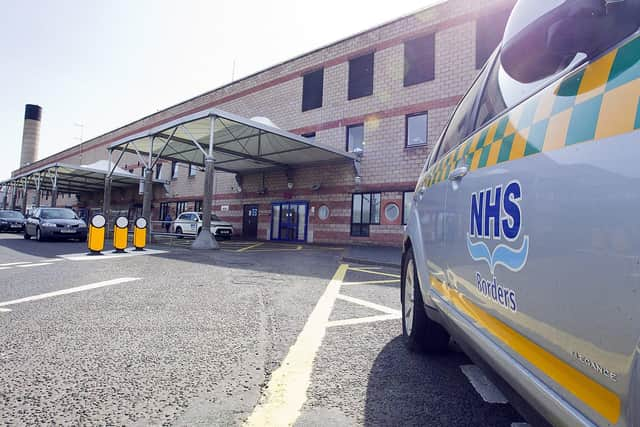NHS Borders apologises to patient's family after treatment leaves them bleeding for nine days
and live on Freeview channel 276
The patient, known as “A”, underwent a cystoscopy (a bladder examination using a narrow telescopic camera), but the procedure had left them with life-altering consequences, and a complaint was made on behalf of the patient by a third party, known as “C”.
An inquiry by the Scottish Public Services Ombudsman (SPSO) led to the ombudsman recommending the local health authority apologise to A’s family and that the board “conduct a review of the information provided to patients prior to surgery and take steps to ensure patients are fully informed before providing their consent”.
Advertisement
Hide AdAdvertisement
Hide AdIt also found that “there was a lack of accurate record-keeping with regard to A's care at Borders General Hospital”, and upheld this aspect of the complaint.


The ombudsman also said the board should remind urology staff of the “importance of maintaining clear and detailed patient records at all times" and asked for evidence that its recommendations had been implemented.
In the decision report, published last month, a SPSO spokesperson stated: “We found that A's medical history meant that they were at an increased risk of complications such as bleeding and incontinence following surgery.
"We were critical of the board for a lack of evidence of A being made aware of these risks when consenting to the surgery.
Advertisement
Hide AdAdvertisement
Hide Ad"We also found that, whilst the board were aware that there would be no specialist urological support available within the hospital following A's surgery, this was not communicated to A.
"Support was available from a neighbouring health board, however, we found that the board's staff did not seek their input as early as they could have when A began to show signs of postoperative complications. We upheld this aspect of C's complaint.”
A spokesperson for NHS Borders told The Southern: “The SPSO findings highlighted that some aspects of care that A received were unacceptable.
"We have accepted the recommendations identified in full and changes have been made so that similar experiences are avoided in the future.
"We are very sorry for the upset caused and have offered a full apology.”